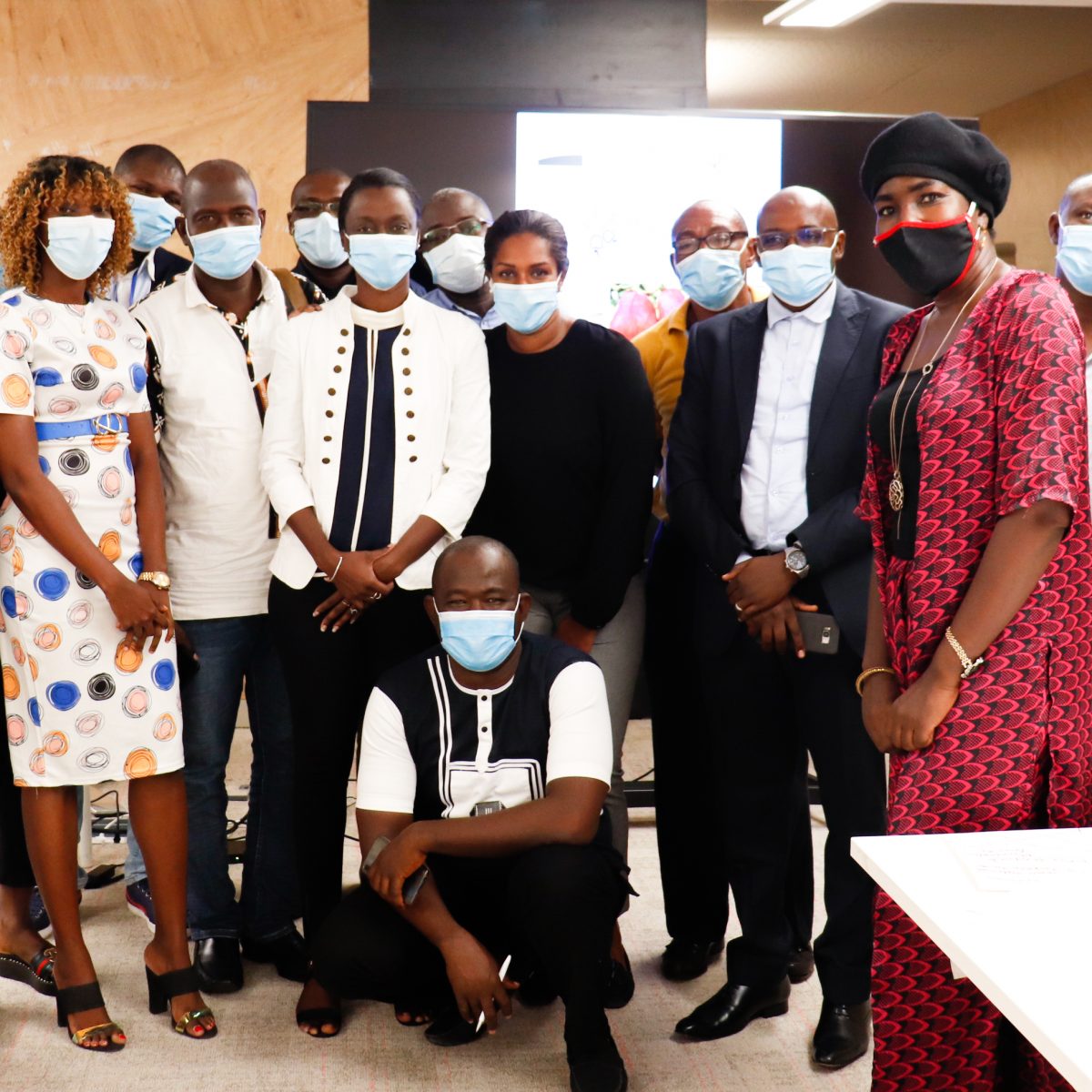
Highlights from Francophone Africa and the Caribbean
DG has been implementing projects in French-speaking African and Caribbean countries since 2007. We apply our technical expertise to develop multilingual customized tools, processes, and analyses to help our partners achieve results in various domains including development assistance, agriculture, extractive industries, and health. This newsletter highlights DG’s ongoing work in francophone countries.
Development Assistance
AMP Democratic Republic of Congo (DRC)
On April 30th 2021, the DRC Ministry of Planning hosted a close-out ceremony as all activities under the current AMP contract were successfully completed. The ceremony was chaired by the Minister of Planning, the KOICA, and UNDP country representatives. The AMP team presented the newly activated AMP modules, including the New Deal Dashboard that was also integrated in the Ministry of Planning website. DG’s presentation focused more on the actual results, the challenges both teams faced during the execution of the contract, and ended with recommendations to further sustain the AMP process in DRC, including strong leadership and a more formal AMP process that leads to good quality data. DG also took the opportunity to advise the government to strengthen their commitment and demonstrate a strong leadership to the AMP process for example by providing the AMP team with proper equipment and a stable Internet connection to support a robust AMP process. On the capacity building front, the local IT team has demonstrated strong technical capacities to maintain the AMP implementation and the new ministry website.
AMP Chad
DG deployed the new AMP version to the Chad server and later updated the platform with new projects and their associated actual disbursements through the end of June 2021. Due to the COVID-related travel restrictions and the high ministry agents turnover rate preventing a stable AMP team that could capitalize on the training received, DG and the Ministry of Economy, Development Planning and International Cooperation jointly opted to hire a local consultant who will receive an intensive AMP training and support new fellow colleagues in AMP data entry. The next steps include improving the current AMP GIS with specific project sites and assisting local IT admins in installing the AMP application in the ministry’s infrastructure.
Agriculture
The Cashew-IN Program in West Africa
To incentivize and strengthen cashew value chain actors in West African, Development Gateway (DG) is partnering with Cultivating New Frontiers in Agriculture (CNFA) on the USDA West Africa PRO-Cashew Project, in Côte d’Ivoire, Benin, Burkina Faso, Ghana, and Nigeria to develop the Cashew-IN data collection and analysis platform. The Cashew-IN platform will use data collected at the farm and cooperative levels to improve competitiveness and cooperation between regional policymakers and remove the trade barriers in West Africa’s cashew sector.
Currently, data in the cashew sector that is collected at the farm level or through farmer associations is only available through reports submitted for official use or paid subscriptions. By expanding and improving upon these existing data-sharing systems, PRO-Cashew aims to leverage the Cashew-IN platform to disseminate improved cashew market information, supporting informed decision-making in the cashew value chain and strengthening the enabling environment for cashew production.
During the early development of the platform, the PRO-Cashew team conducted assessments to better understand challenges along the cashew value chain and identify the information needs of policymakers, farmers, and the private sector. The assessments helped clarify decision-making priorities, relevant processes, stakeholders, data, and tools and to highlight opportunities for actors to make better, more informed decisions. During these assessments, the PRO-Cashew team met with a total of 47 public and private sector stakeholders (11 in Côte d’Ivoire, seven in Benin, six in Burkina Faso, eight in Ghana, four in Nigeria, eight west Africa regional-level stakeholders, and two international stakeholders), including farmers and local policymakers. Discussions with these stakeholders helped the project team understand the political, technical, and practical obstacles to improving data use and develop ways to increase the efficiency and usability of relevant data.
The assessment found that stakeholders understood the importance of reliable data in the cashew sector and the types of data and information that could be useful to their activities. There was also a need to standardize data collection from producers and facilitate its availability to actors throughout the value chain. These initial findings enabled the PRO-Cashew team to draft preliminary recommendations for the Cashew-IN platform that leverage and build on existing data collection mechanisms to display information that would lead to a more robust cashew sector in the five countries.
Given differences in data collection and use, the Cashew-IN platform is being developed using a phased collaborative approach in which initial modules will inform stakeholders of the data’s added value and benefits, and later modules will define the structure of the platform. As part of this collaborative approach, the PRO-Cashew team organized five co-design workshops with stakeholders in Côte d’Ivoire, Benin, Burkina Faso, Ghana, and Nigeria between April and July 2021. The workshops aimed to (i) present the assessment’s findings; (ii) validate the Cashew-IN platform modules in all countries by identifying themes of interest and confirming available and unavailable data, data needs and data sources; and (iii) define the roles and responsibilities of the Cashew-IN platform steering committee during and after the implementation of the platform. Through this inclusive approach, the Cashew-IN platform will increase access to data for better supply chain monitoring, quality control traceability, and evidence-based policy development, and improve the enabling environment for and the competitiveness of the cashew trade in the region.
Women’s Economic Empowerment
Understanding W-SME Data and Digital Needs in Côte d’Ivoire
Development Gateway, in collaboration with the Millennium Challenge Corporation (MCC), has assessed the information, data, and digital technology needs of registered women-led or women-owned small and medium enterprises (W-SMEs) in Côte d’Ivoire. The work aimed to characterize registered W-SMEs in Côte d’Ivoire; understand their access to business information and data; document digital tools and technology needs; and identify existing government, development partner, and private sector engagements and investments that support them. Between December 2020 and January 2021, DG collected insights from key informants and knowledgeable experts (W-SMEs, hubs/incubators, government, and development partners) in the W-SMEs space, and conducted a survey that reached more than 790 W-SME, which helped to further identify and articulate themes and opportunities for increasing data use by W-SMEs.
The work showed that W-SMEs face several challenges including access to finance, information, business and entrepreneurial skills, data use or technology skills, and difficulties in competing/submitting bids for tender. Data use has been a need expressed at different levels including company operations and W-SME sectors and markets of interest. W-SME interviewed mentioned several types of digital training needs, including, basic use of digital technology (use of Microsoft Office, smartphone applications, online platforms, social networks, etc.); access to and use of software that can help them better sell and grow their business, for example, tools to monitor their client portfolio and business activities; and expertise and support to develop an online sales platform. This research in Côte d’Ivoire underlines the importance of better understanding the specific needs of women entrepreneurs in general. It also highlights the need to be able to plan or tailor actions and strategies to be more in line with W-SME needs and expectations. Results of this research may inform investments resulting from a partnership between MCC, the US Agency for International Development (USAID), and Microsoft that will aim to support and empower W- SMEs through business data, digital skills, and a network in Côte d’Ivoire.
Happy Reading!
We recently celebrated the end of the Des Chiffres et Des Jeunes (DCDJ) project in Côte d’Ivoire. This project worked to empower individuals, communities, and organizations, including stakeholders in subnational areas, to use data to improve lives, contribute to ending HIV/AIDS, and help address local development needs and priorities.
Over two years DCDJ trained 86 data fellows, developed a data inventory with over 600 local level data records, supported an open data readiness assessment, and so much more.
→ Read stories from the data fellows
→ Watch the video celebration of the DCDJ project below
Share
Related Posts

From Standardization to Specificity: Localizing Multi-Country Research
Multi-country research must balance consistency with local realities. While standardization allows reliable comparisons and generalizable insights, local context shapes outcomes. This blog explores how programs can strike that balance effectively.

Economic Toll of Tobacco-Related Diseases in Kenya: New Research Findings
Development Gateway: An IREX Venture (DG) is pleased to announce the publication of a research manuscript on the Economic Costs of Tobacco-Related Illnesses in Kenya. This research was carried out as part of the Tobacco Control Data Initiative (TCDI) activities in Kenya and is part of a broader report on Morbidity and Mortality from Tobacco Use in Kenya.

Unlocking Africa’s Agricultural Potential: Introducing the Soil Nutrient Roadmap
For over a decade, Development Gateway: An IREX Venture (DG) has been at the forefront of digital agriculture, leveraging agricultural data to support input monitoring, value chain analysis, and farmer-centric governance models. With funding from the Gates Foundation, DG is launching the Soil Nutrient Roadmap (SNR), a cutting-edge initiative using geospatial data to estimate current and future soil and crop nutrient requirements.






